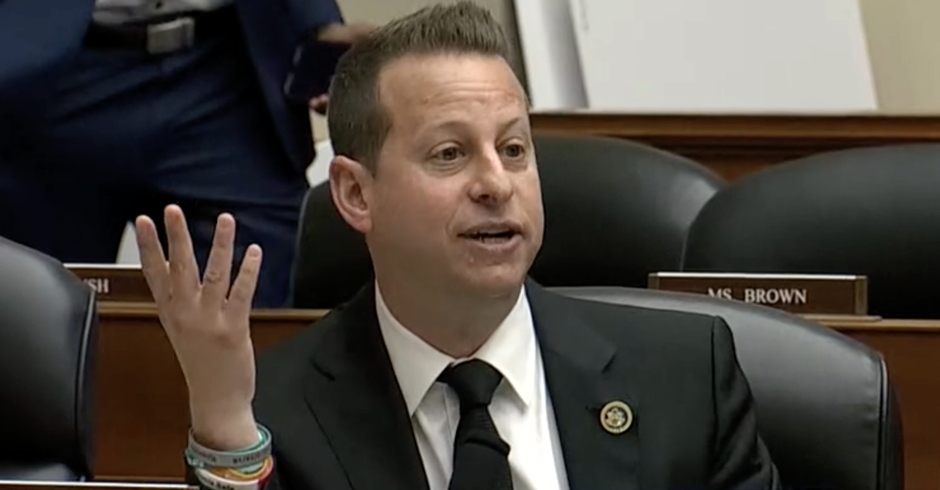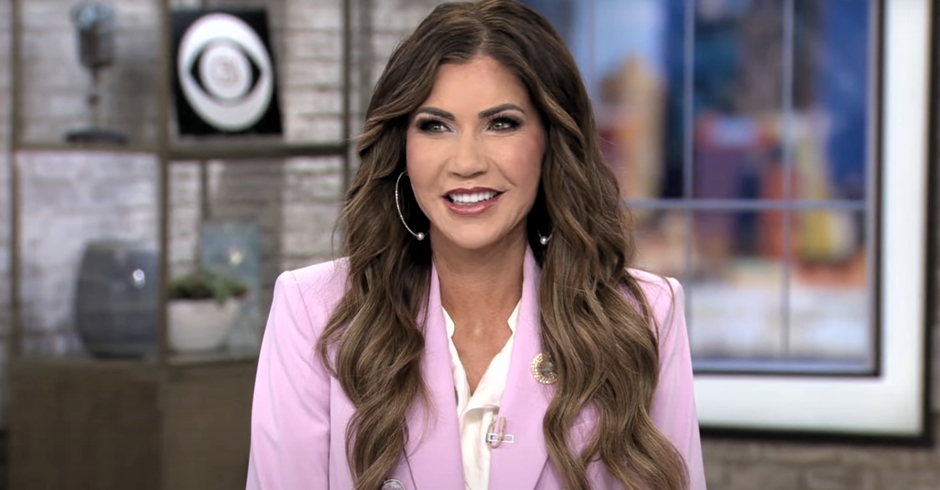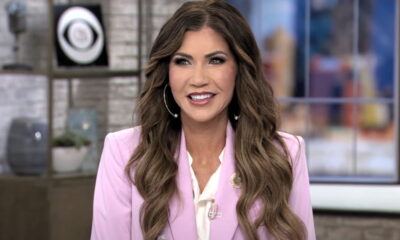Whitney: Sister Can’t Fly On One Wing
Perhaps the drugs were Whitney Houston’s “black†scream, the expression of her rage at the dichotomy between the truth of her life and what we were watching onstage.
 I
“Did Whitney Houston die from drug addiction or from co-dependency?” There are some people who may feel that asking a question like this so close to Whitney Houston’s passing is disrespectful and an act of betrayal. I might agree with them. But celebrity is a curious thing. When people reach Whitney’s height of fame their lives become archetypal, like a prism that we turn in different directions; in the refracted light we see our own stories, our failures and triumphs. A celebrity who has lived a life of entitlement and privilege is suddenly supposed to be afforded the modesty of a private citizen after death. But the fact is that Whitney’s career, her glory, accolades, marriage, addiction, comebacks, not to mention reality show, played out in the public eye. So I’m writing about Whitney because I am shocked by her death, (and at the same time not surprised at all), and like so many others, I’m trying to make sense of what happened and what Whitney has meant to me. Which means I can’t write about Whitney without writing about my life, about myself, and my addiction.
Hours after the news had become public, the paper, news channels and Internet were flooded with tributes to one of the most famous singers of all time and how much she will be missed, even by fellow performers who competed ferociously with her. Whitney knew the business was a killer; she’d been exposed to it at a young age, and released her first album at 22, soon to become a superstar. There was no doubt in my mind that Whitney had genius; her control of her instrument and the beautiful sounds she made with it led to her many Grammy awards and record-breaking sales. Her greatness as a vocalist is unquestioned. What was sometimes in question for me was Whitney’s role as an artist; she was, at times, more a stylist, an interpreter. She could take someone else’s music, and, like an alchemist, turn dross into gold. With the exception of her debut album, I rarely felt the artist’s desire for self-revelation or discovery in her work. There was a ferocious privacy about Whitney, and when I look at her catalogue of music, I don’t know if I really know her, or her story. Whitney was music royalty; with her mother acclaimed gospel singer Cissy Houston, her cousin Dionne Warwick, and her godmother Aretha Franklin, she was deeply anchored in the industry by veterans, and she knew from the women who inspired her how to create the effects she wanted. Still, for all the power in her voice, and her phenomenal success, something was missing.
I remember in the late 80s feeling especially exasperated at Whitney, or the people who were advising her. She often seemed like just another item on the shelf, like diet Coke, or Marlboro Reds. There was a force guiding her career, and making someone rich, but it was too controlling, too rehearsed. I remember watching the “How Will I Know†video, the paint splashed around on the canvases, the “curly-fries†red wig, and I thought, they have absolutely no idea what to do with her. I was furious when she later recorded the grotesque song “Miracle†and sang, “How could I throw away a miracle, how could I face another day, it’s all of my doing, I made a choice, and today I pay…†the last thing the pro-choice movement, or women contemplating abortion, needed. I thought, “they” are telling her what to sing, and how to sing it, and they are destroying any possibility of discovery – the true indication of art. There is no discovery in business; business is, in fact, the antithesis of discovery: if you go to McDonald’s in Dallas, Texas, or London, England, the fries are going to taste the same.  Someone was encouraging Whitney Houston to be a product, a brand. This amazing black voice was consistently singing bullshit; and not just lovely trifles that became classics like her cousin Dionne, but songs that felt willfully repressive; there was a story that was definitely not going to be told through her. I knew that Whitney wasn’t solely responsible for this, but it was her voice in the end on the record, so they had to have her consent. My question is, did she even know what was missing from her music, and did she care?
I have written before that there is an aspect of the black American experience that may only be communicated through song; as a writer I am humbled by this. And there is an aspect of our experience that can only be screamed. That scream is in Aretha’s music and it’s in Chaka’s, (I’m not talking about singing soulfully or hitting high notes: this “scream†isn’t in Mariah Carey’s music or Christina Aguilera’s.) Because racism in America has at its heart  “a black body swinging in the Southern breeze,†we look to our soul singers for catharsis and release – releasing this scream is often what the experience of the black church is about. Over the years, I scanned many of the pop songs that Whitney recorded for a deeper emotional subtext and sometimes felt ripped-off because there didn’t seem to be any – just a performance, albeit a smashing one. Whitney worked hard for her fans, but it was as if she was saying to someone, “If you’re going to treat me like meat, that’s what you’ll get. It may be filet mignon, but it’s still meat.†I felt her later cynicism towards the industry, that she was holding something back; but there was also a perverse dignity in this; perhaps she knew she couldn’t let them have everything. Someone was trying to make her into a Barbie doll, but they couldn’t force her to like it, to claim it as her identity. In a way, the wigs were an act of defiance as well, part of the costume and the inscrutable wall; her way of winking at us and saying that most of this shit, like the music I’m singing, is false.
A friend of mine from Detroit, whose mother played Whitney’s “Shoop, Shoop†song from Waiting to Exhale until the cassette was worn blank on both sides, would consider this opinion blasphemous. Their loyalty to Whitney was absolute. “Whitney’s my girl†my friend would say, and, no matter what new rumor we’d heard, that was the end of the discussion. And I understand her devotion, because Whitney, right down to the wigs, the fur coats, the Bible, and the tension between the world famous pop queen and the girl from Newark, New Jersey, was a strong, American black woman. Which is why her death feels like the death of a family member, a sister, or close cousin. It wasn’t Whitney Houston when you spoke about her, it was “Whitney” – we felt she belonged to us. And we understood her heartbreak on a psychic level, whether she revealed it to us or not.
There are the songs that drive you crazy, that you catch hell for and that change you forever if you sing them, (Billie’s “Strange Fruitâ€, Donny Hathaway’s “A Song For You”), and then there are songs that may drive you crazy if you don’t sing them, if they don’t find release. I found it curious that Whitney’s songs rarely evoked anger, or spoke of politics, or racism, or anything that might invoke “the black experience.” (Her “revenge” songs like “I Learned From the Best” and “It’s Not Right, But It’s Okay” were fun, and mock-angry, but not based on authentic pain.) Whitney’s voice was a revelation, but we never got her blues song, her protest. I argue that Whitney was an artist in the end, but I believe that she was an artist not because of the music industry, but despite it. And I’m not convinced that Whitney always believed in this direction for her career – perhaps the drugs were her “black†scream, the expression of her rage at the dichotomy between the truth of her life and what we were watching onstage. As Billie Holiday wrote in her memoir, Lady Sings the Blues,“I had the white gowns and the white shoes. And every night they’d bring me the white gardenias and the white junk. When I was on, I was on and nobody gave me trouble. No cops, no treasury agents, nobody. I got into trouble when I tried to get off.â€
Â
II
Whitney, like Michael Jackson, had been so much a part of my life it’s hard to remember a time without her. My life is filled with “Whitney Momentsâ€: like snapshots in a family album. I remember the first time I ever saw men dancing together at a gay bar in my town; they played Whitney’s “Love Will Save the Day†every Friday and the tiny floor was packed. Later that year, petrified about coming out, I spoke to one of the Resident Advisors in my college dormitory. He was a very out gay white man with a huge Whitney poster in his room. It was the blue cover from her second album; her hand pushed forward in a stance as sassy as the obvious wig on her head. I sat in his chair shaking with shame as he stretched and pliéd in front of me (a dancer) and said everything was going to be fine, girl, just calm down. Whitney’s bright, reassuring smile seemed to be agreeing with him.
Â
As in the blues tradition, “Death come a-creepin’ in my room,†you eventually have to ask yourself at some point, why do I want to kill myself, what I am trying to kill inside me? As a gay man, I know when I’ve sometimes felt the need to kill something inside me, or what I am told – whether from childhood conditioning or Rick Santorum’s presidential campaign – should be dead. I don’t know what Whitney’s demons were, perhaps there were many, but I know there are addicts for whom there aren’t enough drugs in the world, who can’t get high enough to escape, and for whom “excessive partying†is really just a polite term for suicide attempts.
Â
She was one of the few black performers on MTV in its early days. I remember when the criticism came that Whitney wasn’t “black enough.† I don’t know if she took this to heart; but around that time she suddenly changed her look, her sound, and her producers. And she had a very “black†boyfriend, a bad boy which gave her street cred, and who soon became her husband. What everyone was calling love, felt more like a Valentine from the marketing department, but Whitney was ferocious about her love for him, and her loyalty to her man. What’s sad is that she didn’t need to be made “blacker “ (unless by blacker one means she should have been given better, more honest material). People remember Dr. King for his civil-rights accomplishments, and rightly so, but forget sometimes, as they did with the backlash against Sidney Poitier and Diahann Carroll in the late sixties, and even Diana Ross and Michael, that sometimes it’s the crossover black performers, the ones in everyone’s homes, who make a great difference in terms of race; the power of blacks and whites agreeing, if they can’t on politics, at least on art and music, (which was the essential magic of Motown): “They’re singing my song.† And whether or not Whitney told a story that was obviously “black,†the textures in her voice alone were familiar and recalled a black woman’s experience in America. Whether she was telling her own story in the music or someone else’s, there was authenticity in the rendering.  She was telling a story, and exquisitely, and the world was listening.
When the drugs came, and Whitney’s life seemed like a Cinderella story gone bad, I watched her give interviews, and marveled at the denial in her answers.  And I worried for her; I heard the words, but I wasn’t hearing the humility that comes with real recovery. Perhaps Whitney associated humility with humiliation and refused to let us see her bowed. But she may have had a triumph if she had truly acknowledged what addiction was costing her. One of the reasons why she was such easy fodder for comedians like Debra Wilson and Kathy Griffin was the fact that after a while the denial was ludicrous, and it seemed that Whitney was the only one who wasn’t in on the joke – the nadir came when she asked Diane Sawyer to “show (her) the receipts†for the sums the media reported she was spending on crack cocaine.
I do not know what drugs Whitney used other than the ones she admitted, but I understand her defensiveness. I am an ex crack-addict, a term I am absolutely not comfortable with, and which I submit with various caveats; I only “partied†with others, I only used it to enhance sex, I used for the first time after my mother died because I was depressed, etc. But crack works fast: after only two occasions, I found myself on the floor sifting through the carpet, trying to decipher the paint chips from the crack cocaine chips. (Some of you know exactly what I’m talking about.) I only used for the better part of a year, perhaps a dozen times, and it is my shame that makes me reveal all these things here, because the last thing I want anyone to call me, and I’m sure Whitney felt the same way, is a crackhead. I went to college, my parents “raised me right,†so, please do not compare me to the five a.m., ATM emptying, pawn-shop selling, standing-on-the–corner-begging-for-change crackhead – thank you very much. The only problem with this distinction is that if you believe it, it can kill you.
My message is that you don’t have to reach absolute bottom to get help. I recently told a man I met my story: he laughed and said he used more crack in a weekend binge that I did in my whole “drug career,†but I can’t afford to laugh with him, because it’s this thinking that could send me back out, thinking, “It wasn’t that bad.” Part of me will always crave crack for the rest of my life, period, and crack doesn’t give a fuck how old you are, or how educated, or whether you are one of the greatest singers of all time, or unemployed and living with your mother. I’d much rather tell you I’m in recovery from “cocaine†addiction – there is still a”Bright Lights, Big City†mystique to cocaine, cocaine is sexy to some people. But crack is associated with wretchedness, like combing the carpet for drugs when you’re broke, or being on a reality show and humiliating yourself for attention to help your husband’s career. In a way, I’m grateful for crack, because while you can play games with other drugs — weed, Ecstasy, perhaps even LSD, with crack, and crystal meth you have to face the truth– you will go to the Upper Room and deal with yourself, or else.
As in the blues tradition, “Death come a-creepin’ in my room,†you eventually have to ask yourself at some point, why do I want to kill myself, what I am trying to kill inside me?  As a gay man, I know when I’ve sometimes felt the need to kill something inside me, or what I am told – whether from childhood conditioning or Rick Santorum’s presidential campaign – should be dead.  I don’t know what Whitney’s demons were, perhaps there were many, but I know there are addicts for whom there aren’t enough drugs in the world, who can’t get high enough to escape, and for whom “excessive partying†is really just a polite term for suicide attempts. The reasons are manifold. We may feel we have to stay high in order to cope with the pressure to succeed, or to make a destructive relationship work.
When I got sober, I met a man who entered my program the same time as me whom I’ll call Mario. We were around the same age, both men of color, and I considered us to be in recovery kindergarten; we even counted days together. But when I got to 30 days, he picked up a drink. Mario was dating a woman who was extremely toxic and who kept going back to her ex; every time she broke Mario’s heart, he would pick up a drink. Fortunately, a woman in my program who helped me, heard me talk about my past family issues and said, “You’d better go into recovery for co-dependency now. If you don’t, with your history, you’ll never get sober. You’re drinking to numb old pain.†I finally told my friend, when he called me crying, having picked up a drink for the third time, “Your problem isn’t only alcohol, it’s your relationships.†I don’t know what happened to him, but he refused to stop seeing her, and I never saw him again. I thought about Mario, eight years later, when I saw Whitney tell Oprah in 2009 that “Bobby was my drug.â€
Prior to that relationship, Whitney was also pursued by rumors that she was gay; that the love of her life may have been a woman. I never knew Whitney, and I can’t confirm this. What I do know is that Whitney didn’t have to be gay for homophobia to affect her choices; in an effort to dispel those rumors and “prove everyone wrong†she may have stayed in an unhealthy relationship long past its sell-by date. Perhaps her pain came from not being able to reveal an aspect of herself to the public, in the way her image was created for her; or perhaps the heterosexism, the religious pressure and the need to prove to everyone “I’m straight†leads to the kind of self-righteous, “stand-by-your man†postures that keep some women stuck with men who hurt them. Whether she was gay or not, Whitney had to deal with the force of our speculation, and the need, for whatever reason, to prove us wrong.
I recognized Whitney in these moments, and I marvel at the contradictions. In interviews, Whitney would talk about singing in church and realizing for the first time as a girl how powerful her voice was; she would close her eyes and sing, and when she opened them people would be shouting and getting the spirit; the Holy Ghost experience as we know it in the black church. When Whitney raised her hand to praise “my Lord,” I know the faith she was speaking of; I recall my great-grandmother who, with her Bible, prayed all kinds of intolerable experiences into shape; who knew and evoked the power of the Holy Ghost in her life.  But I also saw the shadow side of the black church in Whitney; the evocation of Jesus as the ultimate “get-out-of-jail-free card,†or rather, using your Bible as a shield to keep someone from getting too close, from helping you, or encouraging further discussion. “Leave me alone. I’m going to be fine. Jesus is taking care of everything.†Yes, He is: but he’ll also need you to tear up the drug dealer’s phone number.
Years ago, I was at work and someone said they heard on the news that Whitney Houston was dead. It turned out to be a hoax. At first, I thought, How cruel, then I imagined that someone close to her wanted her to hear that news story as a premonition; so when I saw the news this time I thought, Whitney’s detractors (or true friends) are at it again, trying to humiliate her into the shaping up because she’s picked up drugs. I waited for the follow-up story, like the teacher saying, “Go back inside now, class, this was just a drill, in the event of a real emergency…” assuming Whitney was still with us.
The follow-up never came. Whitney is gone, and one of the reasons her death is so painful is clear: as an archetype of black womanhood, of American success, of addiction, she was on a hero journey, a journey to overcome her pain, and we were there with her. We wanted her out of those woods, and into the clearing and sunlight. And despite the schadenfreude that comes with iconic success, the gossip, whispers and laughter, I believe we wanted her to thrive – because if she could, then maybe we could get off drugs too, leave abusive partners, apologize to our children for abandoning them while we were sick, and come back with another success after horror and pain. Despite the fact that we laughed at her pride, I think most of us could feel that even as an icon, she was dealing with what a lot of us deal with: the pain of being more successful than a parent who shared her dream, “coming out†from the image created for her and saying to the “fathers†in her life, that she wasn’t going to be their good little girl anymore. And she almost made it. Last week, I read an article about her role in the remake of the movie about a girl group in the sixties, Sparkle. I imagined the irony of Whitney playing the mother of the lead singer Sister, and envisioned the climactic scene where she realizes that Satin, Sister’s boyfriend, has beaten her again, and gotten her hooked on coke. “Sister, Baby, he’s just gonna drag you to the gutter with him. I’ve lived in Harlem all my life. I do know a rat, when I see one.† Later in the film, Sister says about her addiction, her abusive relationship, and the pressure to perform, “Sister can’t fly on one wing.†There is no way these scenes, if kept in the new film, wouldn’t resonate with truth, pain, and recognition with Whitney in the role.
Pauline Kael, reviewer for the New Yorker, wrote about Sparkle in 1976,
“If the women who are ‘too much’ for men fall for…rough guys who brutalize them, it probably has to do with…the woman’s insecurity about being too much. The stronger a woman’s need to use her energy, her brains, and her talent, the more confusedly she may feel that she has a beating coming…Movies now seem to be almost begging for this theme to come out. It is highly unlikely that a woman can become a major screen star at this time unless she has a strong personality…In Sparkle, we can believe in Sister, but not in the rise to rock stardom of the docile, unassertive Sparkle, because given the social and biological circumstances of women’s lives, a woman who isn’t called a hard-driving bitch along the way is not likely to reach any top. A movie can show us the good girls winning the fellas, mothering the kids, succoring those who have met with adversity, but a good-girl artist is a contradiction in terms.â€
Â
III
I was in a restaurant several months ago, going through a difficult time, and Whitney’s “Greatest Love of All†came on. At first I rolled my eyes with impatience; as much as I am into genuine spiritual uplift, sometimes pop anthems, and the way they are orchestrated for high-level manipulation, get on my nerves. But this time I listened to what Whitney was telling me, through the schmaltz. I know I’ve heard that song a zillion times, but at the end I got it, I really heard her, maybe for the first time: “And if, by chance, that special place, that you’ve been dreaming of, leads to you to a lonely place, find your strength in love.†I capitulated totally to Whitney at that moment, and discovered something new. That the defensiveness I saw in her masked something that also came out in her performance of “I Will Always Love You†– Whitney, in fact, was vulnerable, tender, could easily be hurt, and was, in the end, a healer. The fact that she could reach us so deeply, through so much artifice around her, is a deeper testament to her gift. Our collective heartbreak is that she felt she had to destroy herself, to define herself.
 Image by asterix611
Â
 Max Gordon is a writer and activist. He has been published in the anthologies Inside Separate Worlds: Life Stories of Young Blacks, Jews and Latinos (University of Michigan Press, 1991), Go the Way Your Blood Beats: An Anthology of African-American Lesbian and Gay Fiction (Henry Holt, 1996) and Mixed Messages: An Anthology of Literature to Benefit Hospice and Cancer Causes. His work has also appeared on openDemocracy, Democratic Underground and Truthout, in Z Magazine, Gay Times, Sapience, and other progressive on-line and print magazines in the U.S. and internationally.
Max Gordon is a writer and activist. He has been published in the anthologies Inside Separate Worlds: Life Stories of Young Blacks, Jews and Latinos (University of Michigan Press, 1991), Go the Way Your Blood Beats: An Anthology of African-American Lesbian and Gay Fiction (Henry Holt, 1996) and Mixed Messages: An Anthology of Literature to Benefit Hospice and Cancer Causes. His work has also appeared on openDemocracy, Democratic Underground and Truthout, in Z Magazine, Gay Times, Sapience, and other progressive on-line and print magazines in the U.S. and internationally.

Enjoy this piece?
… then let us make a small request. The New Civil Rights Movement depends on readers like you to meet our ongoing expenses and continue producing quality progressive journalism. Three Silicon Valley giants consume 70 percent of all online advertising dollars, so we need your help to continue doing what we do.
NCRM is independent. You won’t find mainstream media bias here. From unflinching coverage of religious extremism, to spotlighting efforts to roll back our rights, NCRM continues to speak truth to power. America needs independent voices like NCRM to be sure no one is forgotten.
Every reader contribution, whatever the amount, makes a tremendous difference. Help ensure NCRM remains independent long into the future. Support progressive journalism with a one-time contribution to NCRM, or click here to become a subscriber. Thank you. Click here to donate by check.
 |











